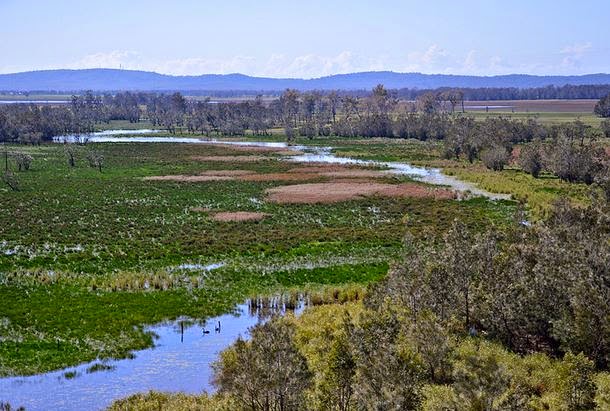Everlasting Swamp National Park
Presented by Dean Egan, NPWS
Wednesday 4 March @ 12 noon
Environment Protection Authority, Level 2, Grafton Government Office
Block
Have you
heard? The newest of NSW’s national parks is on Grafton’s doorstep: Everlasting
Swamp National Park was gazetted in November 2014.
Located
near Lawrence, this freshwater meadow backswamp is a hive of activity for
brolgas, black-necked storks, black swans and a vast array of wader species.
The
site’s hydrology was modified during its interesting history of vegetable and
tea tree cropping, and cattle production. It requires an extensive wetland
restoration project to allow the previous moniker of ‘The Kakadu of the South’
to be fully realised.
Learn
more about the site’s values and challenges, and get a rare fly-over glimpse of
the potential of this local wetland.
These
seminars are hosted by the NSW National Parks and Wildlife Service, part of the
Office of Environment and Heritage. They are free and open to anyone within the
community who has a passion for learning about the environment, and for
discovering and critically discussing policy work or research relevant to the
Clarence Valley. You can bring your lunch.


